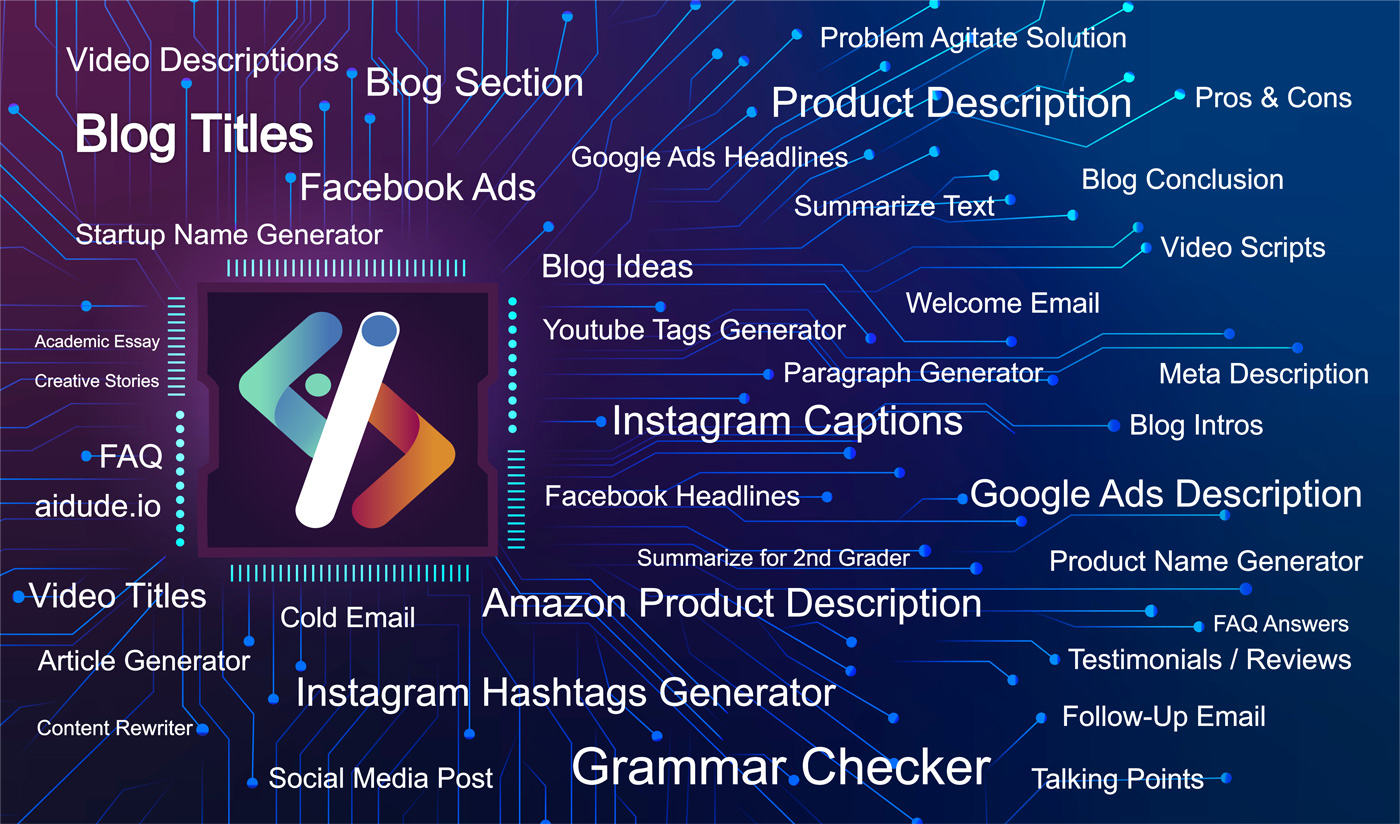
Ai, or artificial intelligence, is a rapidly growing technology that is
beginning to be integrated into our everyday lives. https://aidude.io
AI is an area of
computer science that emphasizes the creation of intelligent machines
capable of completing tasks that would normally require human
intelligence.
There are four main types of AI; narrow or weak AI,
general or strong AI, super AI, and artificial neural networks. Narrow
AI is the most common type, and it is used in many applications such as
virtual personal assistants, facial recognition systems, and search
engine optimization. General or strong AI is the type of AI that could
mimic human thought and is still under development.
Super AI is a
concept that describes AI with capabilities much greater than the human
brain, while artificial neural networks are computing systems that are
inspired by biological neural networks and are commonly used in machine
learning and language processing. All of these types of AI have broad
applications in our current world and continue to shape the way we
interact with technology.
There are generally four types or categories of AI, each with its own strengths and limitations. These categories are based on the level of autonomy, decision-making ability, and complexity of the AI system. The four types of AI are:
- Reactive Machines: Reactive machines are the most basic type of AI, which can only react to specific situations based on programmed rules. They do not have the ability to form memories or learn from experience. Reactive machines operate in the present moment and do not have any knowledge of the past or future. Examples of reactive machines are Deep Blue, the computer system that defeated chess grandmaster Garry Kasparov in 1997, and AlphaGo, the computer program developed by Google's DeepMind that defeated world champion Lee Sedol in 2016. Both of these programs were designed to play specific games, and they could only react to the current state of the game.
- Limited Memory: Limited Memory AI systems can make decisions based on past experiences or events. They can analyze historical data and make predictions based on that data. These systems can store data, which can be used to make decisions in the future. Examples of Limited Memory AI systems are self-driving cars. Self-driving cars use data from sensors and cameras to make decisions while driving. They can store data about past driving experiences to improve their decision-making ability in the future.
- Theory of Mind: Theory of Mind AI systems have the ability to understand the emotions, beliefs, and intentions of other entities. They can predict the behavior of other entities based on their understanding of their emotions and beliefs. Theory of Mind AI systems are not yet fully developed, and they are still in the research phase. These systems could be used in social robotics, which involves the development of robots that can interact with humans in a social context.
- Self-Aware: Self-Aware AI systems have the ability to understand their own existence, consciousness, and emotions. They can reflect on their own thoughts and experiences and make decisions based on that reflection. Self-aware AI systems are not yet fully developed, and they are still in the research phase. These systems could be used in the development of advanced robots that can think and feel like humans.
In conclusion, the four types of AI are Reactive Machines, Limited Memory, Theory of Mind, and Self-Aware. Each type of AI has its own strengths and limitations, and they are all at different stages of development.
As AI technology continues to advance, we can expect to see more complex and sophisticated AI systems that can perform increasingly complex tasks.